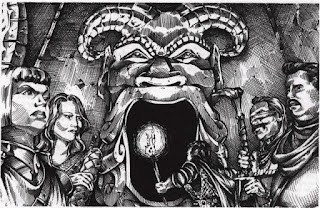Game mastering is not intended to produce stories worthy of publication, nor should it be used as a means to do so. It is a participatory creative writing exercise. It is ideas shouted out by friends around a table. It develops and changes at a whim, and the entertainment comes from the act of playing and experiencing the narrative.
Novels, movies, and other media don't work like this. They are crafted with time and care before they even reach the point of publication. Like a sculptor working a marble slab, parts are cut away and molded until they are just right. These stories are the result of outlines, revisions, rewrites, and planning in order to convey some very specific themes and ideas. You won't get a great novel out of a roll of the dice. Luke Skywalker's encounter with Darth Vader isn't contingent on either party scoring a critical hit. You'll never have total creative control over dice or players' actions. Nor should you! Someone who is trying to play author at the game table can be disruptive and creatively stifling to their fellow players.
Tabletop RPGs are a great creative exercise, but they are not a means for producing creative content worthy of publication. So don't try to force it into that. If you find that too much of your creative energy is monopolized by gaming, it is okay to take a break and work on your novels or short stories. Find the time to enjoy the freedom of creative control and free time to weave the kind of tale that you want to tell. You might even collaborate with someone. You will have the ability to incorporate specific themes and establish a beginning, middle, and end as you see fit. It's healthy, fun, and mentally stimulating!
But I have seen too many players and GMs try to apply these methods to the tabletop. They try to 'author' their campaign, and become frustrated when things don't work out like they planned... The players start burning down the world a GM tailored for a specific story, and they take it too personally. Or a player gets frustrated because the GM isn't focusing enough on his quest to find his long-lost parents. They need to take a step back and reconsider how they are approaching the game.
It's really fun to listen to a tabletop campaign featuring creative players, and there are many podcasts that give you the opportunity for just that... there are also places where you can watch creative people play video games with fun commentary. These are forms of entertainment that can be fun, emotional, or dramatic. But it's not authorship, and it doesn't need to be.
So don't try to turn your boat into a car. If you find yourself running or playing a game with a specific story in mind, or hoping to publish the events of a Dungeons and Dragons adventure as a short story or novel I encourage you to consider it carefully. Because you'll find that authorship and role playing work cross-purpose. Instead simply use RP as an outlet to stimulate your imagination, and channel that energy into other creative endeavors away from the tabletop. The Dragonlance books and Steven Erikson's Malazan series were both inspired by the worlds and characters of the authors' RPG days. They used elements from their games and turned them into something they could work into a narrative. If you do the same, you can still be a good author as well as a good player. Both your campaign and fellow players will benefit greatly from it.
Happy ventures!
Happy ventures!















